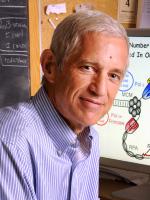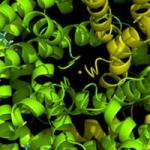
Thomas Kunkel, Ph.D.
NIH Distinguished Investigator
Genome Integrity & Structural Biology Laboratory / DNA Replication Fidelity Group
NIEHS
Research Topics
The DNA Replication Fidelity Group investigates the fidelity and efficiency of DNA replication and the DNA repair processes that control cell survival and genome stability. We also investigate how environmental stresses perturb these processes, resulting in cytotoxicity, mutagenesis and adverse effects on human health. Our efforts include studies of several repair processes that remove ribonucleaotides incorporated during replication as well as DNA damage generated by endogenous cellular metabolism or exposure to environmental stresses (e.g., radiation, chemicals). These repair processes provide undamaged substrates for DNA replication, which is normally efficient and highly accurate. Our studies here investigate the ability of accurate DNA polymerases to select correct nucleotides for incorporation into DNA without adding or deleting nucleotides, and the ability of proofreading exonuclease to correct errors during replication. If DNA damage is not repaired prior to replication, lesions can stall replication fork progression. Among several mechanisms alleviate this potentially cytotoxic dilemma, we study translesion synthesis catalyzed by specialized DNA polymerases, a process than can be mutagenic. Finally, we also study how replication errors that escape proofreading are corrected by DNA mismatch repair. Defects in the processes that determine replication fidelity can result in mutations that underlie numerous diseases. Moreover, studies of mutations and functional polymorphisms in genes encoding proteins involved in replication fidelity processes are important for understanding individual variations in susceptibility to environmental disease. Mutations resulting from replication errors are also relevant to the emergence of drug-resistant viral and microbial pathogens, and to the growth of tumors resistant to chemotherapy. Conversely, replication errors contribute positively to both evolution and development of a normal immune system.
Biography
Thomas A Kunkel is an investigator in the Division of Intramural Research of the NIEHS/NIH. He is the Leader of the DNA Replication Fidelity Group in the Laboratories of Structural Biology and Molecular Genetics. His research merges structural biology, biochemistry and molecular genetics to investigate how DNA replication errors are avoided or generated by three processes, nucleotide selectivity, proofreading and mismatch repair. These studies reveal how perturbations in these and related processes lead to mutations that can have both adverse and beneficial consequences for organisms from viruses and bacteria to man.
Selected Publications
- Kunkel TA. Rapid and efficient site-specific mutagenesis without phenotypic selection. Proc Natl Acad Sci U S A. 1985;82(2):488-92.
- Umar A, Buermeyer AB, Simon JA, Thomas DC, Clark AB, Liskay RM, Kunkel TA. Requirement for PCNA in DNA mismatch repair at a step preceding DNA resynthesis. Cell. 1996;87(1):65-73.
- Pursell ZF, Isoz I, Lundström EB, Johansson E, Kunkel TA. Yeast DNA polymerase epsilon participates in leading-strand DNA replication. Science. 2007;317(5834):127-30.
- Nick McElhinny SA, Gordenin DA, Stith CM, Burgers PM, Kunkel TA. Division of labor at the eukaryotic replication fork. Mol Cell. 2008;30(2):137-44.
- Nick McElhinny SA, Kumar D, Clark AB, Watt DL, Watts BE, Lundström EB, Johansson E, Chabes A, Kunkel TA. Genome instability due to ribonucleotide incorporation into DNA. Nat Chem Biol. 2010;6(10):774-81.
Related Scientific Focus Areas


Molecular Biology and Biochemistry
View additional Principal Investigators in Molecular Biology and Biochemistry

This page was last updated on Friday, April 12, 2013